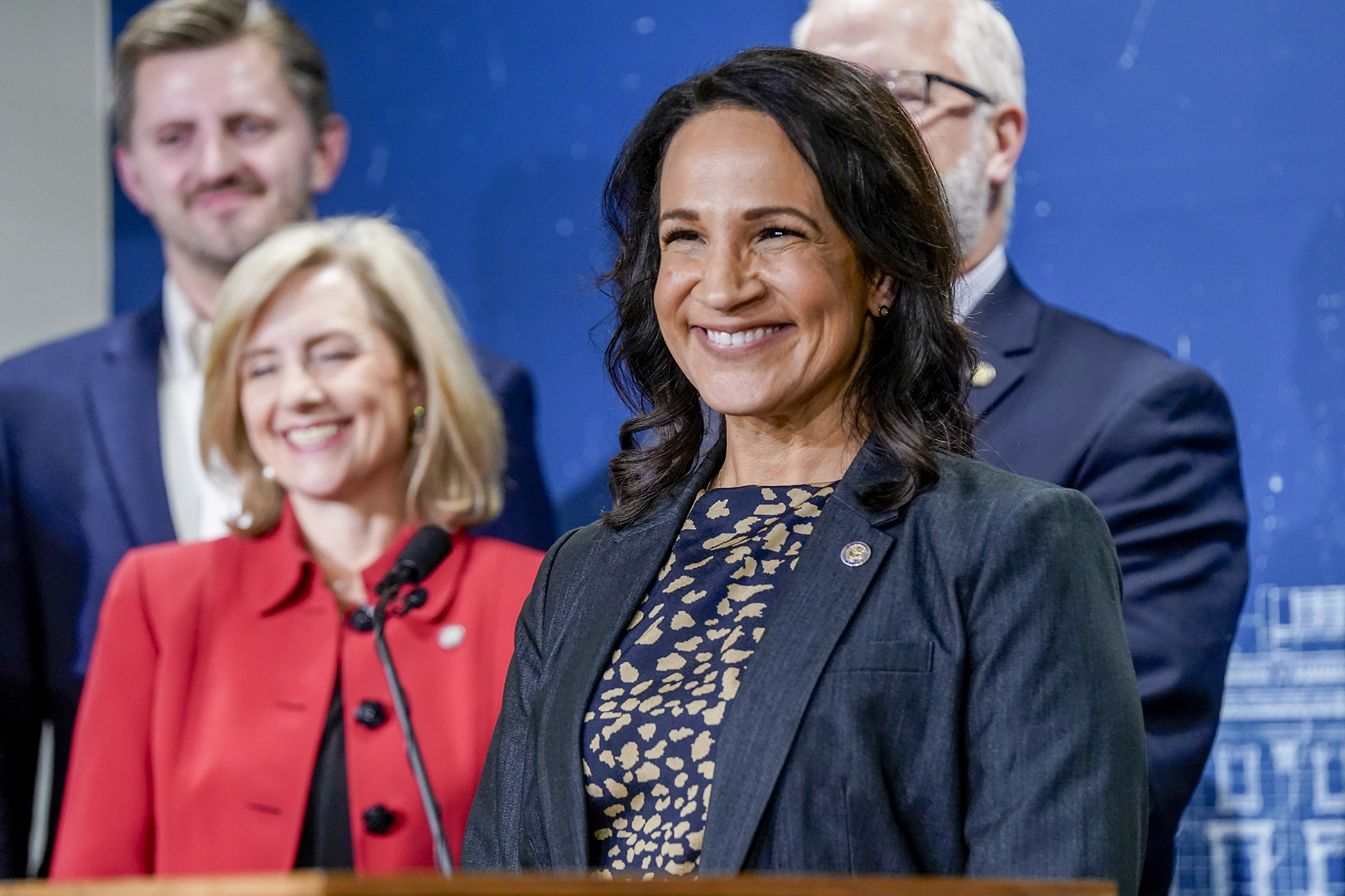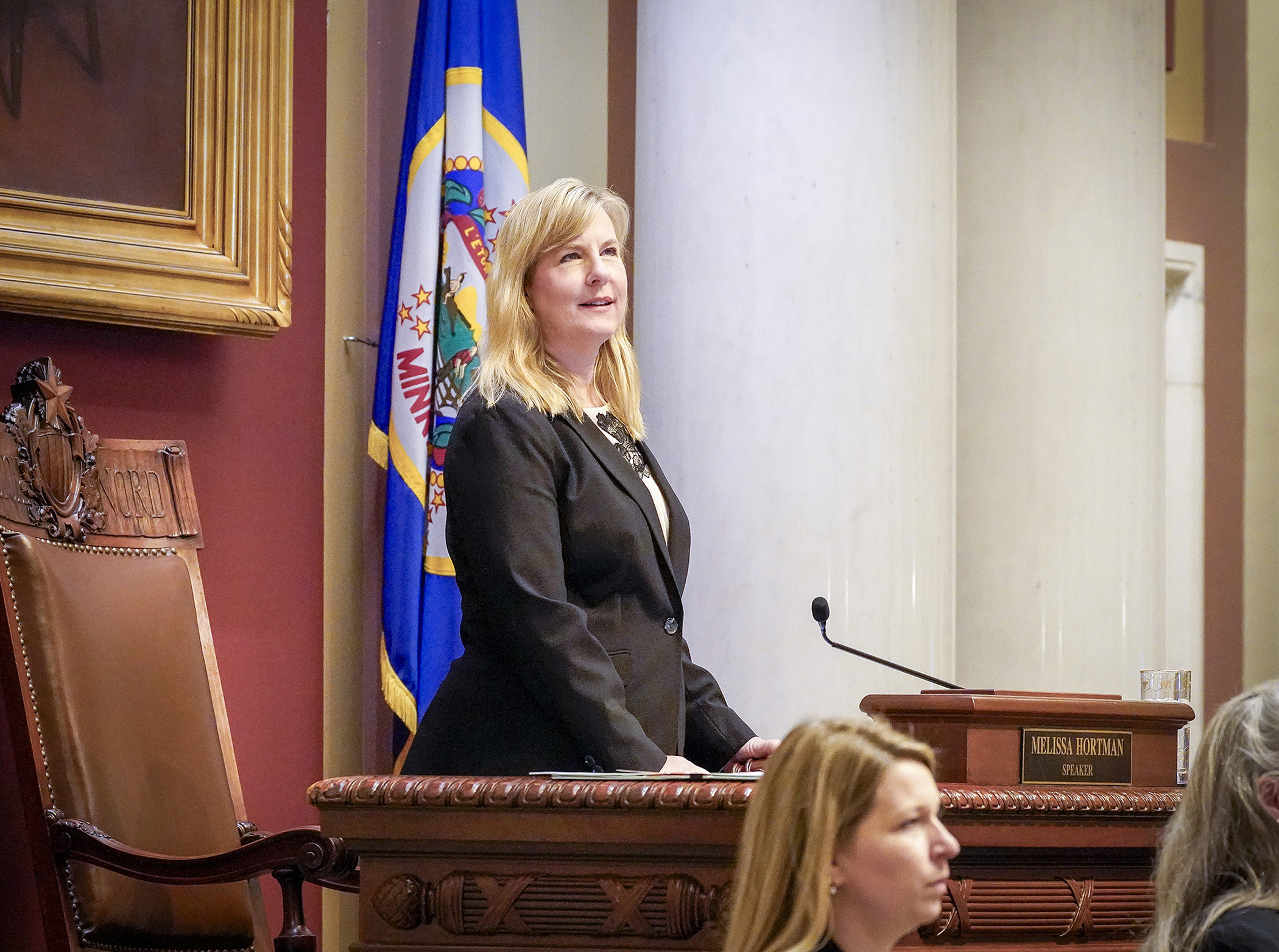Division report features tax relief for renters and homeowners, aid for school districts and local governments

If you rent the place where you live, a tax break may be on the way. And homeowners may start seeing bigger refunds, too. And don’t be surprised if your school district and your town’s infrastructure get a boost from increased state aid.
But your taxes could go up too, if you live in one of the towns that’s seeking to raise revenue through a local sales tax. You’ll have the chance to weigh in about that on Election Day.
On Monday, the House Property Tax Division received a walkthrough of a delete-all amendment to HF4064, and testimony was taken. It plans to review amendments and take action Wednesday. Rep. Cheryl Youakim (DFL-Hopkins), the division chair, sponsors the bill.
Technically, its Senate companion is SF3971, sponsored by Sen. Matt Klein (DFL-Mendota Heights). But that bill only deals with the House bill’s changes in the local government aid formula. While that bill awaits action by the Senate Taxes Committee, a more detailed collection of property tax proposals is probably on the way from the Senate Subcommittee on Property Taxes.
“One of the major tasks we have in this division is making sure that our tax system has a sense of fairness and equity,” Youakim said. “The largest investment – nearly two-thirds of our budget – goes to a very transformational change in the renter’s credit.”
That change would include simplifying the measure of income used to calculate the credit and converting it to an income tax credit that renters would claim as part of their individual income tax return, receiving their refunds on the same schedule.
“This will add more than 100,000 new renters receiving this credit,” said Rep. Aisha Gomez (DFL-Mpls). “Right now, there are hundreds of thousands of renters over the state of Minnesota who leave money on the table. … We want to make your housing affordable, based upon your income. This is going to be a game changer.”
The bill would also create a formula to fund school districts more equitably across the state, increase most homestead credit property tax refunds, and increase local government aid by $68.4 million in the next biennium.
County program aid would be increased by a more modest amount ($26 million in the 2024-25 biennium), the state’s soil and water conservation districts would receive annual funding of $22 million, and the state’s school building bond agricultural credit rate would be increased.
Speaking of the increases for local government aid and county program aid, Bradley Peterson, executive director of the Coalition of Greater Minnesota Cities, said more is still needed.
“Even with this increase in the program, needs continue to be great with the upheaval coming out of the pandemic,” he said. “If the division report becomes law, since 2013, there will be a 136% increase in the homestead credit refund, compared to only a 40% increase in the local government aid appropriation. The homestead credit refund, in our view, does not warrant this projected rocket boost, especially when LGA continues to lag behind.”
In addition to increasing the homestead credit state refund, the bill would increase the value thresholds for the homestead market value exclusion and:
- increase the income limit for the senior citizens’ property tax deferral program;
- create a single classification for manufactured home park property and lower the class rate for that type of property;
- increase the additional or “targeting” property tax refund; and
- create tourism improvement districts.
The bill would streamline the language and timelines for a city seeking to institute a local-option sales tax to raise city revenue for a specific purpose or project. It would grant or extend the authority to impose such a tax (if approved by voters) to the cities of Aitkin, Blackduck, Bloomington, Brooklyn Center, East Grand Forks, Edina, Golden Valley, Grand Rapids, Henderson, Marshall, Proctor, Rochester and Roseville, and to the counties of Rice and Winona.
The local sales taxes would have to be approved by voters at a general election within two years of the authority being granted.
It would also provide special tax increment finance authority to the cities of Fridley, Hopkins, Plymouth, Savage and Woodbury. It also contains local lodging tax provisions for Plymouth and Woodbury.
These bills have been incorporated in part or in whole into the House Property Tax Division report:
- HF1095 (Hertaus)
- HF1429 (Vang)
- HF1661 (Schultz)
- HF2181 (Anderson)
- HF2300 (Richardson)
- HF2810 (Swedzinski)
- HF2865 (Dettmer)
- HF2928 (Marquart)
- HF2929 (Marquart)
- HF3066 (Lislegard)
- HF3224 (Huot)
- HF3384 (Hanson)
- HF3518 (Youakim)
- HF3558 (Marquart)
- HF3586 (Torkelson)
- HF3629 (Morrison)
- HF3669 (Marquart)
- HF3687 (Schultz)
- HF3719 (Reyer)
- HF3725 (Huot)
- HF3782 (Stephenson)
- HF3906 (Keeler)
- HF4064 (Youakim)
- HF4226 (Agbaje)
- HF4227 (Gomez)
- HF4399 (Sandstede)
Related Articles
Search Session Daily
Advanced Search OptionsPriority Dailies
Demuth named Republican speaker-designate
By HPIS Staff Current House Minority Leader Lisa Demuth (R-Cold Spring) is officially the Republican speaker-designate charged with working with DFL counterparts to get the House organized fo...
Current House Minority Leader Lisa Demuth (R-Cold Spring) is officially the Republican speaker-designate charged with working with DFL counterparts to get the House organized fo...
House DFL selects Hortman as speaker-designate
By Jonathan Mohr House DFLers have again chosen current House Speaker Melissa Hortman (DFL-Brooklyn Park) to lead their caucus amid uncertainty in the aftermath of Tuesday’s election that may ha...
House DFLers have again chosen current House Speaker Melissa Hortman (DFL-Brooklyn Park) to lead their caucus amid uncertainty in the aftermath of Tuesday’s election that may ha...